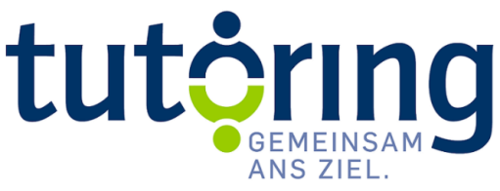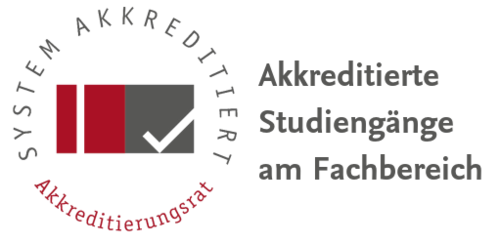Program
Program description
Science, Technology and Medicine in the Ancient World is an interdisciplinary master's degree program that focuses on the many different areas and contexts in the ancient world in which the transmission and development of knowledge and/or scientific thinking plays a central role.
At the heart of the program is the idea that all people at all times and in all places have used signs – both observable and conventional – to make sense of their world. It is only, however, with the emergence of knowledge practices that are embodied in artifactual materials, and especially with the development of notational systems in the fourth millennium BCE, that we can trace the calculating mind through time. As part of this program, you will examine both textual and non-textual records, although with the textual elements as the primary point of orientation for non-textual materials.
The program offers a broad overview of the different types of knowledge that existed in the ancient world, as well as the different ways in which ancient forms of scientific thought have been studied over the last century. Alongside standard coursework in methods and approaches, the program focuses especially on the history of notation, writing systems and human consciousness.
Through courses in ancient medicine, astronomy and mathematics and/or the various forms of divination in the ancient world, program participants will develope a fine-tuned awareness about the different epistemological and ontological paradigms at work both in the ancient world and several present-day analytical approaches and disciplines.
Alongside the core content of the program, the master's program also seeks to inculcate the principles of scholarly practice, which are explicitly taught throughout the program.
Program structure
The master’s program is divided into two areas, each composed of several modules, which consist of two courses – a third area of the program is reserved for your master’s thesis:
| Number of semesters in the program |
Core area 65 credit points |
Complementary area 30 credit points |
||
|
1st semester 30 credit points |
Module Knowledge and Its Resources: Interdisciplinary Approaches to Wissensgeschichte (15 credit points) |
Elective module (15 credit points) |
||
|
2nd semester 30 credit points |
Module Notation, Writing Systems and Human Awareness (15 credit points) |
Two of the following modules: Divination in the Ancient World (15 credit points) -or- Astral Sciences and Mathematics in the Ancient World (15 credit points) -or- Medicine in the Ancient World (15 credit points) |
||
|
3rd semester 30 credit points |
Elective module (15 credit points) |
|||
|
4th semester 30 credit points |
Module Research Colloquium in Wissensgeschichte (5 credit points) |
Master's thesis (25 credit points) |
||
| 120 credit points | |
|||
Career prospects
Successful completion of the master’s program, especially with its international character and its focus on the history of science, technology and medicine, prepares you for a wide range of different careers in both university and non-university contexts.
Due to the concentrated work on methodology, theoretical traditions and philological requirements, the program qualifies you to pursue a doctorate, both in individual disciplines and in areas where they intersect. It is ideal preparation for doctoral studies in the history of science, both ancient and modern, as well as in the history of knowledge. Students will also be ideally prepared for doctoral programs in more traditional philological disciplines such as Assyriology, Egyptology or the Semitic languages.
The Freie Universität Berlin is home to several internationally oriented, graduate schools such as the Berlin Graduate School of Muslim Cultures and Societies (LINK) and the Friedrich Schlegel Graduate School of Literary Studies (LINK) as well as the International Max Planck Research School "Knowledge and Its Resources: Historical Reciprocities" (LINK) and the Berlin Graduate School of Ancient Studies (BerGSAS, LINK). Furthermore, the Dahlem Research School serves as the organizing centre for junior researchers at Freie Universität and provides continuous, systematic and sustainability-oriented support to early career researchers. It develops strategies and measures to assure and improve the quality of graduate education, while at the same time offering an extensive qualification program (LINK).
The master's degree program is also excellent preparation for employment in higher education; in university and non-university research institutions, culturally oriented institutions, such as museums, in academic management, in research development within universities and (scientific) journalism, in documentation; in media outlets, archives, in international organizations, in adult and continuing education.
Frequently asked questions
Arabic, Hebrew, Persian, Syriac-Aramaic, Akkadian, and Turkish are taught as part of bachelor's programs in German at the Freie Universität Berlin, but German language proficiency is required to participate in these courses.
STMAW builds on your existing language skills and consolidates those skills through reading courses.
Please check with the academic advisors about transferring ECTS from other master's programs, but as a rule, previous coursework will not reduce the requirements of the STMAW program. Please note that ECTS taken into account to fulfill one of the admission requirements cannot be transferred as part of fulfilling module objectives.
At the moment, a semester abroad is not a fixed component of our program, but students are encouraged to study or complete an internship abroad, preferably in their third semester. Please note, however, that students have to organize their stay abroad independently.
The Freie Universität's office of the International Student Mobility is an important resource for students interested in studying abroad (LINK).
Keywords
- career
- content
- graduate schools
- modules
- phd
- program
- structure
- study plan


